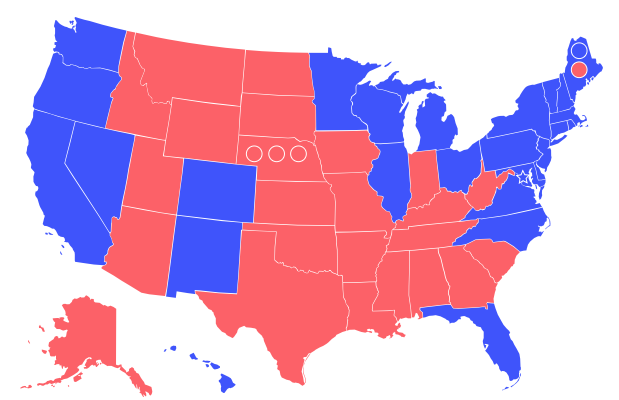Discussing immigration and sanctuary cities, Bill O’Reilly began speaking of the coming clash of two “sovereignties”, the States individually and the national government, but never got to finish his sentence. Speaker Gingrich interrupted to say, “there is one sovereignty” in America and that’s the national government. “The Civil War settled the sovereignty question.” Unfortunately, the Speaker is correct. We need a bit of history…
Sovereignty is the inalienable power of free will parcel to our creation by our Creator to join in compact with another and to disjoin from that compact for reasons the other may or may not understand. They are sides of the same coin: the inherent and inalienable power of free will. The joining and the disjoining (secession) are expressions of free will and neither Constitutional nor Unconstitutional but Extra-Constitutional.
A compact is for the governance of our private or public lives, as we determine. In the private realm, it is marriage or friendship or any relationship in which two or more decide their way to associate. In the public square, it is a fundamental governing act of a people to join in compact any other sovereign people of any other place on earth. The corollary to this fundamental power to join in compact is to disjoin from the compact, that is, the act of secession – the fundamental power of a sovereign people to disengage from a compact and form a new compact with another sovereign people … or go it alone.
In America, in 1781 it was the sovereign, free will acts of the individual peoples of the individual American States acting as States, already seceded from the British Crown, to join together to establish through the Articles of Confederation the United States. Later, in 1787, they moved again as individual peoples of individual States to compact under a new Constitution.
In simple terms, the fundamental authority of 13 self-governing peoples gave birth to the individual States by secession from the British Crown when there was no United States. Later those same peoples gave birth to the United States in the Articles of Confederation in 1781 and in 1787 replaced the Articles with the present Constitution, a document that with amendments and Supreme Court decisions the United States today pretends to govern the structure of a national government. But the 1787 Constitution did not create a National government.
It created a Central government with specified powers. The peoples were intensely aware of their States and though the danger of a National government was in the wind, it was soundly defeated in Philadelphia. When deciding how to choose a President, an office they considered necessary but dangerous to a federal Republic, the initial idea was that the Congress and Senate of the United States would decide. That was the gathering of all the State legislatures (Senate) and the individual peoples of the States (House of Representatives). Thus, all States would be properly and completely represented. But there were serious objections including the vulnerability of any Central government legislature to manipulation by increasingly large, demanding financial forces and the likely happenstance that the President would be beholden because the House could impeach him and the Senate try him for “issues” they decided upon.
A second suggestion was a national plebiscite of all the peoples in the United States to elect the new President, bypassing the State and Central government legislatures. But this also failed because, characteristically realistic, the 1787 Convention understood the ease of manipulation of any general population. In other words, the people are too far removed from actual governance and the governing individuals in office to make an intelligent choice. Everything would be to fate. Further, no State government would or could allow itself to be manipulated by the people of another State.
So the Founders came up with an “indirect” method (Madison’s word) giving the peoples of each State a voice through Electors who held no State or Federal office but according to rules of election and eligibility provided by the States. The Central government would have no task except accepting the votes or breaking a tie or when there is no tie but also no majority. Then things walk into the House of Representatives.
The core words of the Electoral College clause, “Each State shall appoint, in such Manner as the Legislature thereof may direct…” were the Founders’ bow to State sovereignty.
**************
The mode of appointment of the chief magistrate of the United States is almost the only part of the system, of any consequence, which has escaped without severe censure, or which has received the slightest mark of approbation from its opponents. Alexander Hamilton, Federalist No.68
Time is a changeable river. Today the Electoral College is under severe attack for the second time in 16 years. The reasons are three: 1) the Founders did not envision a Republic encompassing so extensive a land mass as we have today, 2) they did not and could not take into consideration the growth of political parties which most found abhorrent, and 3) they did not foresee one day Americans would not look at themselves as part of their State but only part of a National government.
The way we inched the monumental shift of sovereignty from States to a National government began with the Washington administration when the President approved go-ahead for a national bank. Jefferson warned it would be a severe blow to State sovereignty and it was (McCulloch v. Maryland, 1819). Washington had been President of the 1787 Convention and knew the Framers voted overwhelmingly against allowing the Central legislatures to create corporations. But he turned that experience aside and gave headway to creeping nationalism. The creeping lava flow continued through Jefferson’s Louisiana Purchase, the Missouri Compromise, Polk’s initiation of the Mexican War, the 1848 influx of thousands of German nationalistic immigrants fleeing their failed revolution and Lincoln’s call to arms turning the Constitution on its back. Then came the 14th Amendment and judicial imposition of substantive due process turning the Bill of Rights against the States rather than keeping it a force against the Central, now National government, as Marshall said it was in Barron v. Baltimore in 1833.
By the late 19th century Wilson was claiming the Constitution was dead and the political parties continued the path of national consolidation aided by a massive immigration of poor peoples from southern and central east Europe who hadn’t the foggiest what a federal government is.
Thus, before Lincoln entered the Illinois State legislature in 1834, this long story had begun including Jefferson’s determination, shared by men like Nathaniel Macon, that the Constitution was shredding into torn, pick-up-and-rearrange pieces. The Compact splintered into tatters under artful Presidential and nationalistic legislative largesse of power and an explosive industrial/commercial expansion beyond anything humanity had known before.
But the Constitution is a written document and old notions come alive with new readers. So the original governing principle of State sovereignty remains alive if unappreciated, misunderstood and ignored by the populace at large, held in contempt by major media and ‘progressive’ State and National office holders. Today the Constitution, gone long before any of us were born, is re-arranged as power politics and its propaganda wishes and can enforce.
*************
We should not pretend. The election of Donald Trump by the vast midlands of America, a solid South with the exception of weeping Virginia and with added help from the near Western States (but not Colorado and New Mexico) may be the last hurrah of federalism in America. We’ve lied to ourselves so long. Twice refused the National Presidency by the Electoral College in 16 years, the Democratic Party – Boxer, Rangel, Reid, all walking tombstones – may finish the creeping surge to utter nationalism by amending the Constitution to ordain a national plebiscite. The media that has propelled them remains. They only await new orders.
*************
I spent the late afternoon of Election Day on an operating table and soothed by anesthesia had no notion about the election returns till early the next morning. At 7 am a single text came in: “Can you believe this?” It was then I knew Trump had won though I had believed he would and voted for him in early balloting. Later that day, I heard the disturbing news Hillary had won the popular vote. The rest has been entirely predictable.
Back in 2012 commentators noted that Romney had won a wide swath of territory from the South, up through much of the plains and the near western States plus Alaska. He won more territory than Obama but Obama had won the popular and electoral vote. Then this year, 2016, Hillary won the popular vote and Trump the Electoral College: a compelling change in electoral votes and increased territory.
The difference is simple to understand: this year, west of the Mississippi, only Iowa changed and it went to Trump. The big changes were east of the Mississippi – Wisconsin, Michigan, Ohio, Pennsylvania and Florida – all for Trump.
Both coasts remained the same. The East Coast from Virginia to Maine and the West Coast from California to Washington (with Nevada) stayed with Hillary. Large population centers with less territory went for her. But she lost because in America the States elect Presidents and not the scourge of individual voters easily lampooned, scarified and twisted in the ballooning winds of propaganda pomposity.
So now the roar of secession comes from California and any number of Nationalistic States – States that rarely talk of secession except to use it as a club against the Jeffersonian South. I doubt if they have the courage of conviction. They never have. The quiet has come from those States like Texas where I live who have formidable populations that believe in secession as parcel to State sovereignty. Before the election, I heard at early balloting everyday people talk secession if Hillary was elected. Now it is quiet. Friends (many outside Texas) who supported Trump, write or talk that they have gained a respite. They’ll wait and watch.
This land is held together for another bout in 2020…. but only because of the Electoral College. Without the Electoral College our States would have counted for nothing. We should not pretend otherwise. Secession would be our flag and no one can say where that might end.
America stands on tinders. Here is the girding truth: if Hillary had won or if this land ever goes to a national plebiscite, the people-quake will mirror any geologic quake this land can suffer. Those folks who want to overturn this election should remember that a United States without us who believe in State sovereignty – is fine with us. We will go on our own. We did it before. So leave … go on your own. We will not stop you.
Only a cruel, inhumane war against the Rules of War including an unscrupulous, unprecedented quarantine of medical supplies, a massive sought-after influx of bought European cannon fodder, the ravaging of land, crops and farm animals, the burning of homes and barns bringing starvation no matter the owner’s race or creed, the militarization of civil law to break the will of the people North and South during the war and the South alone after the war through Reconstruction … not only these, but, and finally, the roll of rampant greed in the halls of a newly Nationalized government … these were the weapons of Nationalism that beat us in 1865. An America that discounts and refuses to believe in secession shames our Founders and leaves us teetering into borderless, bleeding anarchy. I do not want to see that again. Yet a national plebiscite will finish liberty and Jeffersonian governance in America.
America’s establishments must be careful what they wish for.







